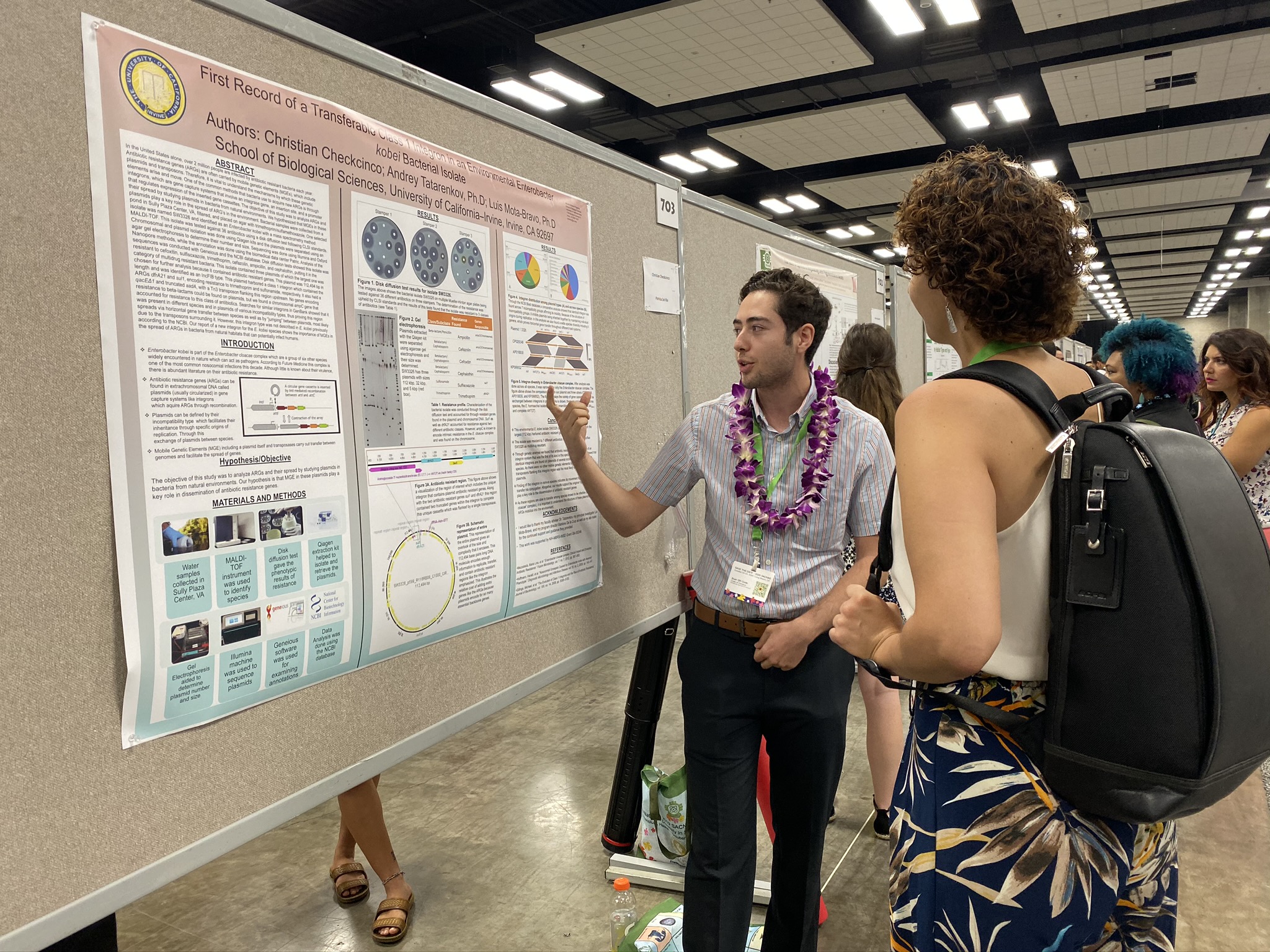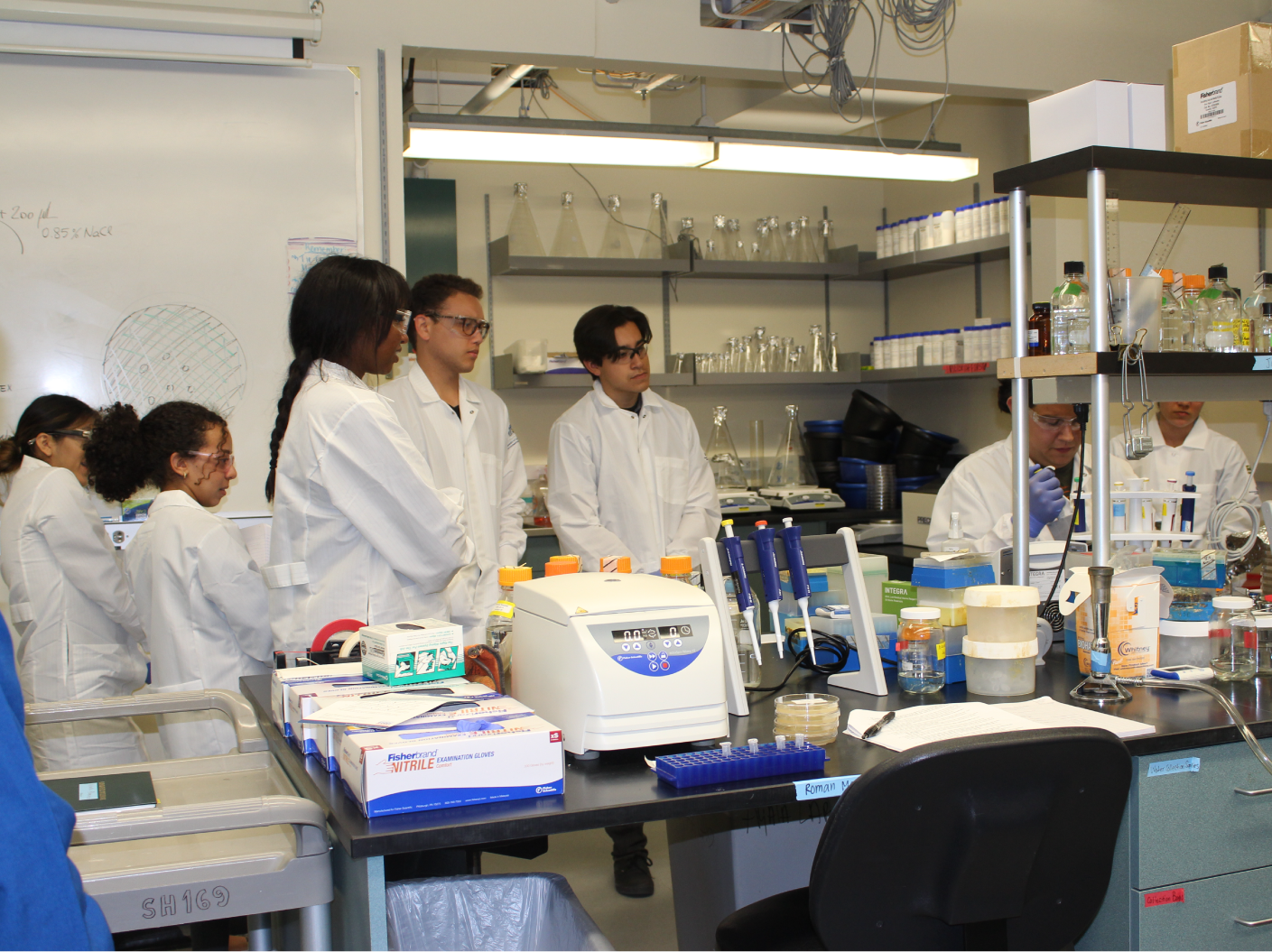Maximizing Access to Research Careers (MARC)
Undergraduate announcement: Deadline to submit applications is April 15, 2024
Program Description
The MARC Program seeks to develop a diverse pool of undergraduates who complete their baccalaureate degree, and transition into and complete biomedical Ph.D. degree programs. MARC provides stipends, tuition and fees to participating juniors and seniors to conduct research. The MARC research training elements are integrated with the undergraduate curriculum and include participation in mentored research with world-class faculty, individual career and academic advising, a research faculty seminar series, a journal club to introduce scholars to critical reading of current biomedical literature, training in genomics, computational biology, statistics and methods to enhance reproducibility, training in responsible conduct of research, preparation to present oral presentations and posters at local and national conferences, training in scientific communication, workshops on application to graduate school, and individual mentoring during the graduate school application process.
A Undergraduate Student Training in Academic Research (U-STAR) Program, sponsored by NIH-NIGMS T34GM136498
Eligibility
MARC scholars must be United States citizens or permanent residents. (A non-citizen national is a person who, although not a citizen of the U.S., owes permanent allegiance to the U.S. This is generally a person born in a land that is not a state, but that is under U.S. sovereignty, jurisdiction, or administration—for example, American Samoa). An individual lawfully admitted for permanent residence must possess an alien registration receipt card (I-551) prior to appointment on the grant.
Individuals on temporary visas, those seeking asylum or refugees, or those supported through the Deferred Action for Childhood Arrivals (DACA) program are not eligible for support through NIH NRSA programs.
MARC scholars must be UC Irvine undergraduate junior and senior students majoring in the sciences, with a GPA of at least 3.0, with an expressed interest in a career in biomedical research and intentions to pursue graduate education leading to a Ph.D. or other Ph.D./combined professional.
Research Training Areas
 Biomedical research includes: such areas as cell biology, biochemistry, physiology, pharmacology, genetics, etc., and behavioral research as well as the more quantitative areas, such as mathematics, physics, chemistry
Biomedical research includes: such areas as cell biology, biochemistry, physiology, pharmacology, genetics, etc., and behavioral research as well as the more quantitative areas, such as mathematics, physics, chemistry
and computer sciences, necessary to analyze biological phenomena. MARC scholars may choose their research advisor among faculty in the Charlie Dunlop School of Biological Sciences, College of Medicine, School of Physical Sciences, School of Engineering and School of Information and Computer Science that are conducting biomedical research.
Benefits, Responsibilities and Timetable
The period of appointment to the MARC program is two years at the junior/senior level. Appointments of less than nine months are not allowable. Failure to comply with the program requirements in full (see table below) or graduation will result in termination prior to the two-year maximum term. 
MARC is a merit-based fellowship program, and thus students are encouraged to apply to MARC regardless of their financial aid status. In most cases, individuals receiving other forms of financial aid are still eligible for MARC. However, since MARC is a National Research Service Award (NRSA) funded by a training grant from the National Institute of Health (NIH), individuals receiving certain other federally-funded grants or fellowships (e.g. Truman, other NIH fellowships) may not be eligible for funding by this program. The program administration will determine whether or not there are financial aid conflicts that render an individual ineligible for financial support by the program.
Concurrent Awards: A MARC traineeship may not be held concurrently with another Federally sponsored traineeship (e.g. CAMP, MBRS, REU) or a similar training award that provides a stipend or otherwise duplicates provisions of the NRSA. However, an individual may accept concurrent educational benefits from the Department of Veterans’ Affairs (e.g., G.I. Bill) and Federal loans.
 Stipend Supplementation: An institution is permitted to provide funds to a MARC trainee in addition to the stipend paid by the NIH. Such additional amounts may be in the form of augmented stipends (supplementation) or compensation for services. Supplementation, when provided, does not obligate the fellow in any way. However, no Federal funds may be used for supplementation. Under no circumstances may the conditions of stipend supplementation for services interfere with, detract from, or prolong the fellow’s approved NRSA training program.
Stipend Supplementation: An institution is permitted to provide funds to a MARC trainee in addition to the stipend paid by the NIH. Such additional amounts may be in the form of augmented stipends (supplementation) or compensation for services. Supplementation, when provided, does not obligate the fellow in any way. However, no Federal funds may be used for supplementation. Under no circumstances may the conditions of stipend supplementation for services interfere with, detract from, or prolong the fellow’s approved NRSA training program.
MARC scholars are expected to engage in research, under the mentorship of a UC Irvine faculty, for 15 hours per week during the academic year and 40 hours per week during the summer.
MARC trainees are required to spend at least one summer at an extramural site for a research training experience (funded by the MARC program). Foreign sites are not allowed.
MARC activities and requirements:
Program Directors
Dr. Luis M. Mota-Bravo, Director of Outreach, Research Training and Minority Science Programs, Charlie Dunlop School of Biological Sciences
Dr. Marlene de la Cruz, Director of Student Academic Development of Outreach, Research Training and Minority Science Programs, Charlie Dunlop School of Biological Sciences
Application
Please download, complete and sign the MARC Application. With your application, please include your UC Irvine transcript (if you have completed less than three quarters at UCI, please include an official copy of transcripts from previous colleges attended).
Quick Links
MSP Programs
Broadening Research Achievement in Neurosciences
Maximizing Access to Research Careers
Questions?
For additional information about MARC please contact:
Dr. Marlene de la Cruz
Director Academic Student Development
Outreach, Research Training and Minority Science Programs, Charlie Dunlop School of Biological Sciences
University of California, Irvine
1134 Biological Sciences III
Irvine, CA 92697-2527
Ph: (949) 824-2589
Fax: (949) 824-6599
e-mail: marlene@uci.edu
